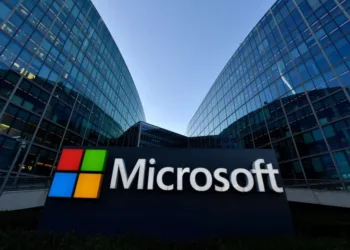Global warming is one of the most prominent issues that has been impacting the planet, and automobiles with combustion engines are amongst one of the primary culprits of global warming.
With increasing awareness, people are now adopting EVs, with the government and private players working together to create an EV-conducive environment in India. To encourage the use of electric vehicles and to promote sustainability, the government has introduced a new liberalized petrol pump licensing rule that states that any entity with a net worth of at least $250 million can apply for authorization to retail petrol and diesel, as well as dispensing of biofuels and CNG, or the installation of EV charging stations, prior to the dispensing of petrol and diesel.
The move towards promoting EVs and encouraging people to buy more because charging will be simplified due to the abundance of charging stations.

Even Delhi, the National Capital of India, is working to provide the best ways to consumers to promote the usage of EVs, it has become a need especially in light of the dire environmental situation and deteriorating air quality. It has become so extreme that the Supreme Court has had to take suo moto cognizance of finding alternative solutions to bring the situation under control.
Apart from this, many well-known brands and starups are also venturing into the market related to EVs; following are some examples:
Kazam:
Launched in December 2020 by ex-Pepsico employees, Kazam is India’s first intelligent IoT-based charging station platform that aims to deliver smart and affordable charging solutions to address India’s infrastructure challenge.
Kazam’s charging stations are approved by NABL and BIS, and the company is presently collaborating with prominent oil and gas companies. As per studies in other countries, they have understood that most of the charging is done at home.
They have specific products for EV owners, which they sell via partnerships with OEM dealers, builders, and RWAs.
There is another tupe of charging, which is known as destination charging, which may be any place where people park their vehicles for more than an hour, like offices, malls, shipping complexes, hotels, etc.
For fleet companies, Kazam is setting up charging hubs where they can park and charge the vehicle. Also, the brand is building charging stations at distribution warehouses of E-com and FMCG companies.
All these places have slow charging since there is the availability of time and using slow charging will keep the battery efficient for a long time.

There are a lot of schemes and subsidies for EV purchases. However, there is no proper plan for the development of charging stations. Some of the state governments are trying to take some steps by themselves.
But most of them are for the development of DC fast-charging stations, which is a small chunk of total EV charging and does not cater to 2W and 3W.
The government has made a good move by introducing LEV-AC as it is a plug-and-play device for charging.
Godawari E-mobility PVT Ltd (eblu) by HIRA Group
Launched in July 2019, Godawari E-mobility Pvt Limited (eblu), a subsididary of the Chattisgarh-ased Hira Group, aims to provide self-employment to million across the nation and reduce carbon footprint with its e-mobility solutions. Godawari E-mobility Pvt Limited was founded with the vision of providing self-employment, social upliftment, and non-polluting commute.
What makes it unique is that it is the first company to launch a leasing business model in the EV space in India. Now the company is also planning to venture into the EV manufacturing business.
Ola
Ola, is one of the world’s largest ride-hailing companies, it has also come up with its rental EVs. It is working with driver-partners, cities, vehicle manufacturers, and battery companies to make sustainable technologies cost-effective and viable in daily mobility.
The new e-scooter boasts a slim profile and a distinctive look attributed to the twin headlamp cluster ringed by LED DRLs. The driving range of the e-scooter is one of the biggest concerns for any EV buyer since companies are still working on building their charging infrastructure.
Zomato
Food delivery company Zomato has joined the likes of Flipkart and Amazon to support sustainable last-mile delivery.
The company has committed to adopt electric-vehicles for 100% of its fleet by 2030 and joined the Climate Group’s global electric mobility initiative, EV100.
Zomato’s current EV fleet is a small fraction of the active fleet of its delivery partners and is deployed for deliveries in cities such as Delhi, Bangalore, and Mumbai. The company is already working with a few EV players to design pilots and creat business models that could facilitate a faster transition towards sustainable delivery solutions.
Also read:








